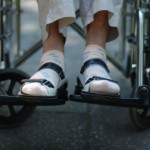
This rapid response report from the Canadian Agency for Drugs and Technologies in Health set out to answer four questions:
1. What is the evidence on the safety of using benzodiazepines in older adults to manage disruptive behaviour or treat anxiety?
2. What is the effectiveness of benzodiazepines compared with that of antidepressants in older adults to manage disruptive behaviour or treat anxiety?
3. What is the cost-effectiveness of using benzodiazepines in older adults to manage disruptive behaviour or treat anxiety?
4. What are the clinical practice guidelines on the use of benzodiazepines in older adults?
Six systematic reviews and meta-analyses addressed benzodiazepine use by older adults. No studies addressed the safety, comparative efficacy, and cost-effectiveness of using benzodiazepines in older adults to manage behaviour or treat anxiety. Nine evidence-based guidelines and recommendations addressed the use of benzodiazepines by older adults for dementia, mood and behavioural disorders, panic disorder, and sleep disorders.
The included systematic reviews and meta-analyses report that the use of benzodiazepines by older adults is associated with an increase in falls and fractures. However, the impact of using these drugs on cognitive decline and mortality is unclear. This increased risk of falls was similar to the risk observed with other drugs commonly used by older adults, including antidepressants, antihypertensives, diuretics, beta-blockers, sedatives, hypnotics, antipsychotics, and non-steroidal anti-inflammatory drugs. The evidence base for the reviews consisted of observational studies that were subject to a range of confounding factors, the exception being a review of insomnia treatments, which was derived from randomized controlled trials. No studies compared the safety and effectiveness of using benzodiazepines against the use of antidepressants in older adults treated for anxiety. The use of benzodiazepines and antidepressants was shown to be associated with an increased risk of falls and fractures that was similar in magnitude to that observed with other psychotropic medications, such as antipsychotics and sedatives or hypnotics. There were no analyses on the cost-effectiveness of using benzodiazepines in older adults.
All the clinical practice guidelines recommended that health care professionals be cautious when considering the use of a benzodiazepine in older patients. However, there was inconsistency in the messaging and recommendations about the place in therapy for these agents in the treatment of anxiety and behavioural symptoms associated with dementia. One guideline stated that benzodiazepines are not recommended because of their high potential for adverse effects. Another guideline stated that there was insufficient evidence to formulate a recommendation. The remaining guidelines recommended a limited role for benzodiazepines. A guideline on the treatment of panic disorder recommends that an antidepressant be used as first-line pharmacotherapy in geriatric patients and that benzodiazepine use be avoided whenever possible. The remaining recommendations in each guideline focused on issues that were related to safety in older adults, with most of the recommendations emphasizing that the adverse effects of using benzodiazepines generally seem to be worse in older adults.
The authors concluded:
The available evidence suggests that the use of benzodiazepines is associated with an increase in clinically important adverse events, such as falls and fractures in older adults. Large, well-designed trials that address the treatment of anxiety or behavioural problems in older adults would be needed to accurately assess the safety, clinical effectiveness, and cost-effectiveness of using benzodiazepines for those issues. However, given the potential risk that is associated with benzodiazepine use by older adults, the feasibility of such a study is questionable.
McIntosh B, Clark M, Spry C. Benzodiazepines in Older Adults: A Review of Clinical Effectiveness, Cost-Effectiveness, and Guidelines (PDF). Ottawa: Canadian Agency for Drugs and Technologies in Health; 2011 (Rapid Response Report: Peer-Reviewed Summary with Critical Appraisal). [cited 2011-01-06].

[…] Benzodiazepines associated with an increase in falls and fractures in older adults. The Mental Elf, 2 Jul 2011. […]